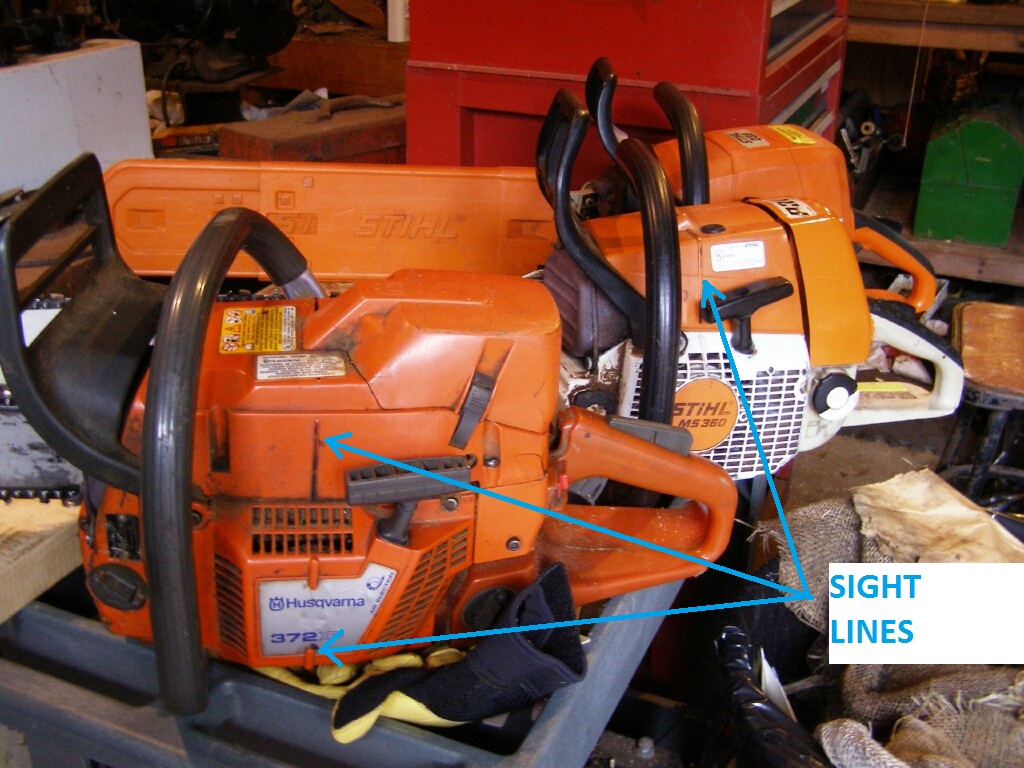(Firewood dude interjecting here...)
One thing I've been doing OH is trying to make more a "game" out of it to see how accurate I can be. Not just "I want it to go in that direction" but "I want it right exactly there." Saw the trick of using a wedge as a target on the bore cut thread and I think I'll try that with the next round of trees I have to drop. It looks like a good training wheel idea for those of us who aren't masters.
Something I noticed big time this year compared to a couple years back is I cut really flat now. I was NEVER as bad as your first cuts here

but I often had a small amount of unplanned slope to them...I'm really not sure when I crossed the line, and whether it's just muscle memory or I'm doing a better job squaring up the saw to the tree with my eye before I commit to the cut, but even stuff I *don't* care about like simply taking stumps down to ground level when I'm done are coming out flat level. Part of that is looking at the whole saw and not just my bar when I'm lining things up.
There's also "sight lines" on the chainsaws on both the starter and sprocket cover sides:
Those let you check to make sure you're making your cuts perpendicular to the direction that you intend to drop the tree which helps avoid having face cut be slightly off or having your hinge end up thicker on one end then the other (yeah, I know there's some advanced tricks that sometimes you want the hinge to be uneven.)
Here's a pic I found through Google of a guy checking to make sure the sighting lines parallel the direction he wants the tree to fall:







